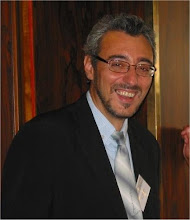What is nothing?
Greeks began to conceive of the cosmos as being made up of matter and its opposite, nothing. They then began to worry about the nature of nothing.
Horror Vacui is a theory first proposed by Aristotle based on the assumption that nature abhors vacuum, and therefore empty space would always be trying to suck in gas or liquids to avoid being empty.
Aristotle held that there are two kinds of motion for inanimate matter, natural and unnatural. Unnatural (or “violent”) motion is when something is being pushed, and in this case the speed of motion is proportional to the force of the push. Natural motion is when something is seeking its natural place in the universe, such as a stone falling, or fire rising.
For the natural motion of heavy objects falling to earth, Aristotle asserted that the speed of fall was proportional to the weight, and inversely proportional to the density of the medium the body was falling through. He did also mention that there was some acceleration, as the body approached more closely its own element, its weight increases and it speeds up. Although not quantitative, Aristotle was right. Indeed the ultimate asymptote of exact zero pressure is impossible to obtain. Modern theory states that the absolute vacuum is unstable and even that the "vacuum is more full than the plenum"

No comments:
Post a Comment